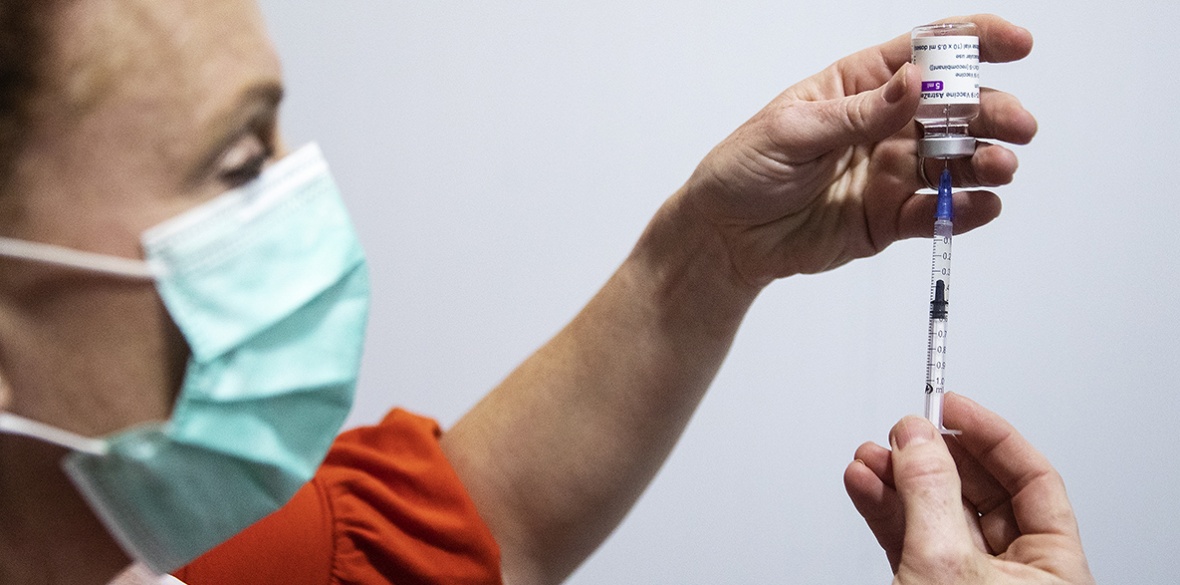This is the last article you can read this month
You can read more article this month
You can read more articles this month
Sorry your limit is up for this month
Reset on:
Please help support the Morning Star by subscribing here
WITH a third wave of the pandemic surging in the UK and hospital admissions rising, on Monday the Prime Minister announced a four-week delay to the lifting of all restrictions in England beyond June 21.
For weeks the media and Westminster has been fixated on whether “Freedom Day” should go ahead as planned. However, speaking to me over the phone last week, Dr Deepti Gurdasani, a senior lecturer in Machine Learning and epidemiologist at Queen Mary University of London, says “the focus on the 21st is a complete distraction.” As she tweeted just before Boris Johnson’s press conference: “Postponing 21st June isn’t remotely sufficient to deal with the current crisis.”
Furthermore, she tells me “what is happening now was entirely predictable and predicted by Sage” (the Scientific Advisory Group for Emergencies advising the government).
The risks of further opening up were clear before the step three change to the “roadmap” on May 17, she explains, pointing me to the May 13 Sage meeting. “If this [Delta] variant was to have a 40-50 per cent transmission advantage nationally compared to” the so-called Kent variant the modelling indicates “that it is likely that progressing with step 3 alone … would lead to a substantial resurgence of hospitalisations (similar to, or larger than, previous peaks),” the minutes record.
These fears were confirmed on June 4 when Sage’s Professor Neil Ferguson told the BBC Today programme the best estimate was the Delta variant is 60 per cent more transmissible.
“I do think the May 17 reopening was a mistake but I think we would have likely seen a rise in cases even then because we know that cases of the Delta variant were actually doubling even prior to May 17,” Gurdasani notes.
The spread of the virus that has happened in schools actually predates the Delta variant, she says, “but the government went ahead and removed masks, which was one of the few mitigations that we have in schools.”
She also highlights Sage’s January 21 2021 warning that the “evidence from the continued spread of the South African and UK variants suggests that reactive, geographically targeted travel bans cannot be relied upon to stop importation of new variants once identified.”
Similar advice was given by Independent Sage at the time, she explains. Both were ignored by the government, which reopened international travel, governed by a new, leaky traffic light system, on May 17.
Gurdasani, who has made a name for herself as one of the most outspoken experts appearing in the media, doesn’t hold back: “Where we are now is a completely predictable consequence of government repeatedly ignoring advice from its own advisers.”
Indeed, it is worth remembering Dominic Cummings testified that Johnson repeatedly cited Jaws, specifically the mayor of the resort town who keeps the beaches open despite evidence of shark attacks, when considering lockdowns.
Though her main focus is the government, Gurdasani doesn’t shy away from criticising her own profession. Interviewed on BBC News on June 4 she noted: “The risk of the Delta variant was hugely minimised by our scientific community and our scientific leadership.”
Why? “What I see here is exceptionalism within our scientific community,” she replies. “We repeatedly dismiss evidence coming in from other countries. And we have done right from the beginning of the pandemic, suggesting that what is happening to other countries has something to do with those countries characteristics, rather than something that applies to us.”
She points to the example of Italy in early March 2020: “We looked at what was happening in Italy and we still didn’t act, we still didn’t close our borders.”
She is also dismayed at how the UK has generally wanted “to wait for rigorous evidence on everything before we act.” Not only that, “we deal with uncertainty by assuming there isn’t risk.”
“We kept saying masks don’t work because we didn’t have trials on them and we wanted to wait for evidence,” she says. “Whereas there were countries that put them in very, very early on. It is the same with variants. We waited so long to make this [the Delta variant] a variant of concern and start surge testing on it despite the fact there were several scientists who had been screaming for weeks, at least four to six weeks, saying that this was really, really concerning given what was happening in India.”
She continues: “It has huge consequences because it takes weeks and months to accrue evidence. Much better to overreact and act early and then when evidence accumulates showing something isn’t a risk then you can remove things.”
She also believes the pandemic has revealed “very clear racial stereotypes” that have undermined the UK’s response.
“We still hear about this: ‘People won’t accept lockdowns because they are freedom-loving. They are not like people in China, like people in south-east Asia, who are far more culturally obedient’… or people won’t wear masks, not like the mask wearing culture in Japan.”
However, as the polling shows, the British public “would have been very happy to adopt earlier lockdowns, and have supported a cautious approach consistently,” she says.
Like the Morning Star, Gurdasani advocates a zero-Covid (elimination) strategy.
It “is not an alternative to a vaccine-based strategy, it is an adjunct,” she explains. “It complements it. And the way it complements it is it really reduces the risk to the population while you roll out vaccinations. It protects people from the risks of transmission, like long Covid, hospitalisations and deaths.”
Second, “it prevents new mutations or variants from arising within the country, or being imported into the country, that potentially threatens that vaccine strategy.”
As it happens, just before I spoke to Gurdasani I received an email from my Labour MP about zero Covid. “I am not aware of any examples of countries where Covid has been eliminated after infections have grown to a significant level and sustained community transmission has taken hold,” my parliamentary representative wrote.
Gurdasani laughs when I quote this to her: “I have a one-word response to that: China.” She is referring to the Chinese city of Wuhan, which went from being the epicentre of the outbreak in early 2020 to life pretty much returning to normal by January 2021, according to news reports.
She argues there is widespread confusion about zero Covid, even among some scientists. “Elimination is not eradication. We’re not saying this is smallpox and we will get rid of it entirely forever. We are saying that we are going to try to keep it out of the community, out of community transmission.”
To suppress the virus she proposes the test, trace and isolate system be completely overhauled. It should work closely with local authorities and take inspiration from South Korea and Japan where there is effective backward and forward contact tracing: “So there is a focus on finding the people that somebody has infected but also how that person has been infected to identify actual clusters of transmission and break them.”
In addition, she advocates “mandatory quarantine for anyone coming in from any country” should be introduced “because once you reach zero risk of transmission essentially comes from outside.”
Implementing an elimination strategy would mean “we can return to near normal faster,” she argues. “Vaccination takes time but a zero-Covid strategy can be achieved in a matter of four to six weeks, depending on the number of cases you are starting from.” And if successful, travel corridors could be set up with other countries that have successfully implemented a zero-Covid strategy.
While she says there is a much to be optimistic about, the interview is, unsurprisingly, dominated by her worries about the government’s continued disastrous response to the pandemic. As she told Channel 4 News earlier this month, the roadmap “has never focused on bringing transmission down.”
And while she “wholly supports” the vaccination programme, she argues there is an over-reliance on vaccines. “The scientific community has, I think, adopted hopium — a sort of blind optimism around vaccines.”
“We are still not thinking ahead to ‘What about the next variant?’,” she tells me. “How do you know this virus won’t adapt towards more [vaccine] escape, which is very likely, or that we won’t import another virus?... What happens then? Are we back to square one? If you want to avoid that I think the only sure way to do it is zero Covid.”
Follow Dr Deepti Gurdasani on Twitter @dgurdasani1.












